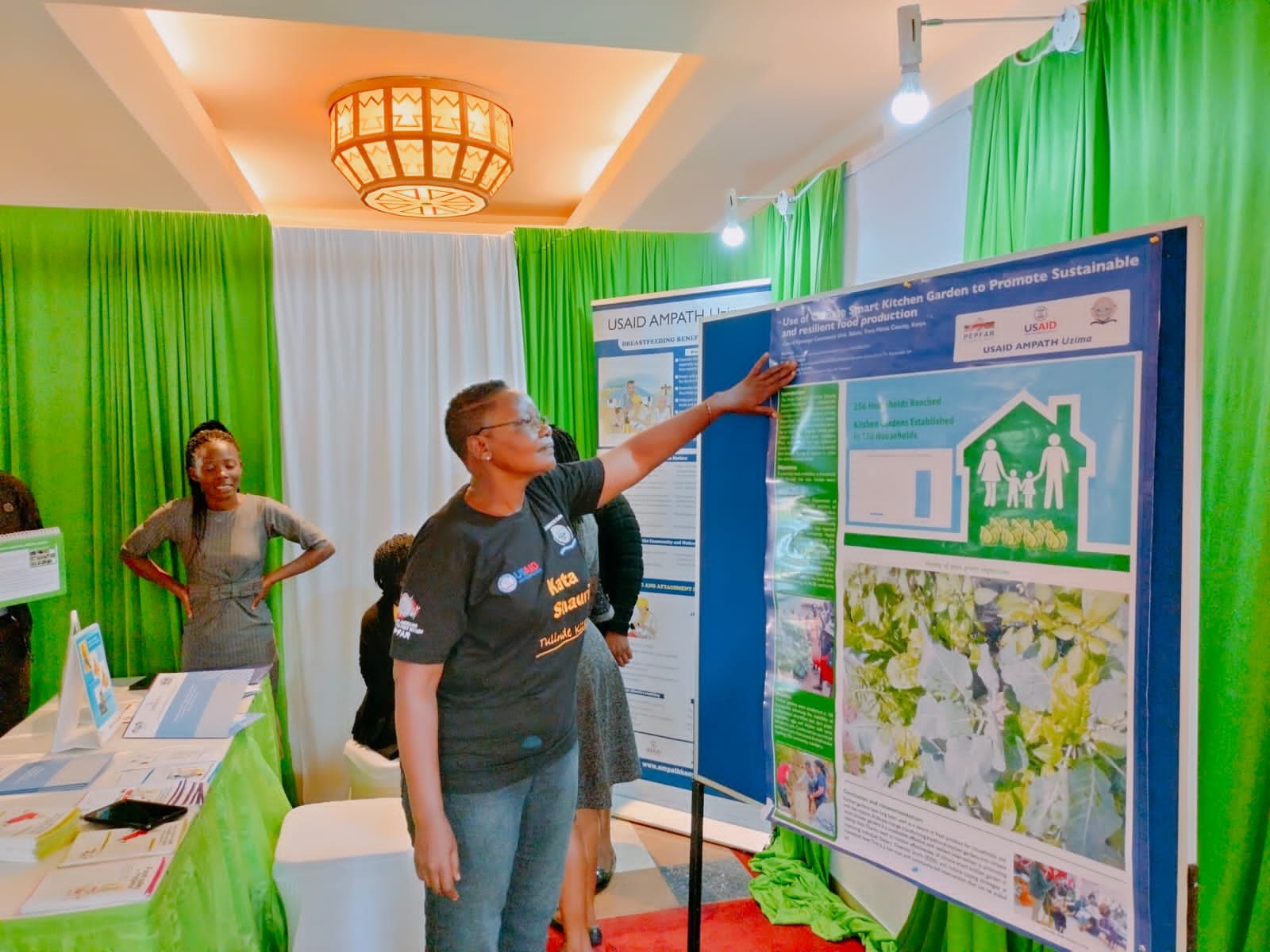Strategic Partnerships Key to Tackling Malnutrition in Trans Nzoia County
Kenya is grappling with the triple burden of malnutrition, including undernutrition, overnutrition (overweight and obesity) and micronutrient deficiency.
Despite Trans Nzoia County being Kenya’s food basket, poverty threatens the growth and nutrition of children, especially in Endebess sub-county, which is the largest of the five sub-counties and has a number of large private farms that engage women who live in informal settlements.
A review of health facility reports supported by USAID AMPATH Uzima identified malnutrition hotspots within the sub-county. With these findings, the program then sensitized health workers, community health volunteers, and community health extension workers on identification and referral of malnourished cases which was followed by mass screening for 7,852 children under five years. One hundred fifty-two cases of severe acute malnutrition were identified within Chepchoina Ward with 10 referred to Andersen Medical Centre for stabilization services. Andersen is a privately-owned facility with the infrastructure and technical capacity to manage acute malnutrition cases.
The center also waived bills for malnourished clients following advocacy by the sub-county health management team. This partnership resulted in a 100 percent recovery among patients who were admitted at Andersen Health Centre and won support from private farms to embrace partnerships in service delivery for community members for improved health and nutrition outcomes.
Due to its success, this intervention was among the best practices presented at the 4th National Nutrition Symposium that took place in April. The theme for the Symposium was “Eradicating malnutrition in all its forms.” The other presentations included in the symposium were: Nutrition Sensitive Potato Partnership Project (NuSePPP) Implementation, Integrating Peer Support Model to improve nutritional practices and health outcomes for Antenatal and Postnatal Mothers and a case study using climate-smart kitchen gardens to promote sustainable and resilient food production in Kipsongo slums, Saboti sub-county, Trans Nzoia County.


